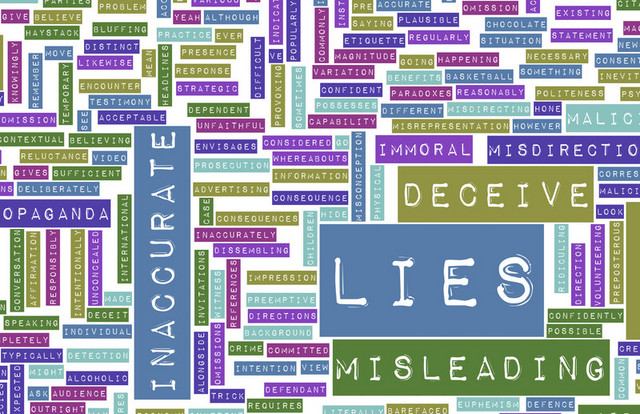
I’m excited about this blog post. While most of my articles are on common topics that you can find information about all around the Internet, the subject of unreliable narrators doesn’t get a lot of ink. And that’s probably because relatively few fiction writers know about the literary device of unreliable narration, and if they do, they haven’t any notion of how to create it or use it to best effect. Recently, I’ve edited several authors who inadvertently created an unreliable narrator, but because they weren’t even aware they were doing it, it wasn’t handled as well as it might have been.
Definition of an unreliable narrator
In most fiction, one of the author’s primary goals is to create a strong, sympathetic, vulnerable, likable protagonist, a person readers can relate to, connect with, and root for, a character who creates empathy in readers and has them identifying with that character on multiple levels. In fact, I encourage creating this kind of relatable protagonist in several of my blog posts on fiction writing. The reader has certain expectations of this protagonist—primarily that he or she will be able to trust and believe in this character, and not be lied to or deceived.
But for a twist, if it suits your story, you can create what’s known as an unreliable narrator. This kind of protagonist (almost always written in the first person) will break that trust that’s typically understood between reader and narrator, will mislead and lie to readers, perhaps by omission, or tell them only half truths—whatever suits them and the unfolding events of the story. Unreliable narration can make for exciting plot developments and twists and lots of suspense for readers, who can never be sure whether what they’re reading is the truth, a partial truth, an omission of truth, or a lie. This kind of narrator will usually have values and perspectives that contrast sharply with the author’s, if those are known.
Because of all this, this kind of character is rarely fully likable and, in fact, often worthy of being despised by readers. An unreliable narrator may be a pathological liar, or a narcissist, or simply delusional, causing readers to feel unnerved or even to revolt in disgust. She may appear quite sane and be highly intelligent. To complicate things, an unreliable narrator may believe she’s telling the truth (for example, if she is psychologically unbalanced), but it’s up to the reader to figure out that she isn’t. The challenge, then, for an author is to write a story that will keep readers turning pages even though they may not feel connected to a contemptible protagonist or simply one they can’t always relate to.
Why use an unreliable narrator?
The best reason to use an unreliable narrator is to create suspense, to keep readers guessing, to keep them turning pages. But it won’t work to simply decide to turn your narrator into an unreliable one halfway through your story only because you want to create or add suspense. The unreliability needs to be built into the character’s psyche from the outset, or possibly develop as the plot unfolds, and the plot should be based on this unreliability. In other words, you’ll need to plan your story, even before you begin writing, around your protagonist’s unreliability.
How to use an unreliable narrator
An unreliable narrator is almost always written in the first person, making your protagonist the unreliable party. If you try to write an unreliable protagonist in the third person, that’s going to make you, the author, the unreliable party—and trust me, that likely won’t work. Readers may accept one of your characters as a liar, but they won’t accept being misled by you, the author.
Writing an unreliable narrator well is notoriously difficult. This is primarily because, as I’ve indicated, it’s hard to create a character to whom readers can relate and with whom they can empathize and at the same time have that character lie to readers. Most people suspect when they’re being deceived, and that creates an element of mistrust. So one of your goals is to create a character who has enough empathetic characteristics that readers will still relate to her to a certain degree even though they may not trust her entirely. Your second goal is to create a plot so compelling that readers will want to turn the pages even though they may not like your protagonist. And perhaps most importantly, your prose style must be so good, so smooth, so clever and captivating, that readers will want to read it for its sheer beauty. All in all, this is a tough assignment.
Finally, if you think you’ve got what it takes as a fiction writer to create an unreliable narrator, this literary device needs to be studied and mastered. The two most important things to keep in mind as you write are:
1. Immerse yourself in your protagonist’s psyche. Most regular protagonists have some characteristics of their authors—this is almost inevitable. Authors write their protagonists using the familiarity of their own mental state. However, your unreliable narrator likely won’t be much like you at all—she may feel more like a villain or antagonist. More than with any other type of protagonist, you’ll need to get completely out of your own head and immerse yourself in the alien head of your unreliable narrator, something easier said than done. What motivates her? What are her deepest fears and insecurities? In what ways do these things fuel her actions and the plot?
2. Remember a cardinal rule of fiction writing: you can’t cheat the reader. To avoid cheating your reader, you’ll need to inject clues, hints, and subtle indications throughout the story that show that the reader is being deceived (even while being thrown off the scent) so that he or she is not entirely taken off guard by the revelation at the end. Clues that allow the reader, if they want to go back and reread, to acknowledge, “Yes, there was a clue here and there that I was being deceived, but it was so well hidden that I just didn’t see it at the time. So I wasn’t being cheated after all.” Some of the best stories with unreliable narrators will have you wanting to read them a second time, in order to see which clues you missed the first time. But make no mistake, those clues need to be there, or the reader will feel tricked and ripped off.
Degrees of unreliable narration

Most memorable protagonists in well-written fiction have some degree of unreliability. That’s because our human perceptions are unique to each of us; we see things through our own often skewed perspectives, and in ways others may deem unreliable. So if that’s the case, isn’t all first-person narration unreliable? Well, yes. But readers will forgive a certain degree of unreliability in all fiction characters because they’ll know your characters are just human, after all. However, deliberately setting out to use unreliable narration as a literary device is something different, something taken a step further than ordinary human unreliability.
All readers engage in fiction with a certain level of suspension of disbelief; that is, they’re prepared, willing, and happy to believe much of what a narrator is telling them, to stretch their imaginations while immersed in your fictional world. But when writing an unreliable narrator, be careful of crossing the line to a point where readers can no longer suspend their disbelief. And it’s a fine line, which is part of what makes writing an unreliable narrator so difficult. If the reader begins to feel more cheated than they feel is fair, or if the protagonist turns into a caricature, or if the plot twists turn ludicrous, you’ll lose your readers. Make a habit of asking yourself of any scene you write, will my readers think this is believable and fair, even after they learn they’ve been lied to?
Examples of unreliable narrators
One of the best things you can do to learn more about this literary device is to read well-written stories with unreliable protagonists. A marvelous thriller with not one but two unreliable narrators is Gillian Flynn’s Gone Girl (Crown Publishers, 2012). It’s an astonishing page turner, a story about a couple, Nick and Amy, who alternate first-person narrative as they each relate the details of their failing marriage through their own damaged perspectives. As you read, you don’t know who to despise more, Nick or Amy, yet you’re still hoping to like at least one of them just a little. Flynn is almost a magician in how she has you not wanting to put the book down despite making you suffer these two narcissistic, sociopathic characters. She plants clues and keeps the reader guessing just enough to make the reading experience tantalizing and not frustrating. I must admit, though, that I found the ending somewhat disappointing, and I feel that’s partly because it’s very difficult to create a satisfying conclusion with two unlikable characters. Still, I could hardly put the book down until the end.
More well-known examples:
- Nick Carraway in The Great Gatsby by F. Scott Fitzgerald
- Holden Caulfield in The Catcher in the Rye by J.D. Salinger
- Nelly and Lockwood in Wuthering Heights by Emily Brontë
- Lucy Snowe in Villette by Charlotte Brontë
- Huck in Huckleberry Finn by Mark Twain
- Humbert Humbert in Lolita by Vladimir Nabokov
- Screwtape in The Screwtape Letters by C.S. Lewis
- Mrs. de Winter in Rebecca by Daphne du Maurier
- Briony Tallis in Atonement by Ian McEwan
- Alex in A Clockwork Orange by Anthony Burgess
- Chief Bromden in One Flew Over the Cuckoo’s Nest by Ken Kesey
- Dr. Sheppard in The Murder of Roger Ackroyd by Agatha Christie
- Christopher Boone in The Curious Incident of the Dog in the Night-time by Mark Haddon
- Marta Bjornstad in How to Be a Good Wife by Emma Chapman
- Patrick Mateman in American Psycho by Bret Easton Ellis
- Pat Peoples in The Silver Linings Playbook by Matthew Quick
- Various characters in the Harry Potter series by J.K. Rowling
Pitching to agents and publishers
Even done well, writing an unreliable narrator story is a risk when it comes to pitching and marketing your book. It is a sad but unavoidable fact that, to a great extent, unlikable protagonists do not go over well with agents and publishers. I found it fascinating to read on one acquisitions editor’s blog about how bad she felt that she couldn’t acquire more manuscripts with unlikable narrators. The problem, she said, was that those books just don’t sell as well as others. Readers want likable protagonists, and if they’re disappointed with a protagonist who’s not very relatable, that book will invariably receive poor reviews—at least poorer reviews than those with likable narrators. This editor lamented that she had to turn down manuscripts she would have loved to accept, solely because she knew they wouldn’t pass muster with her sales department. She went on to speculate over whether Gone Girl would have even been accepted by a big publisher had it been Gillian Flynn’s first fiction and had she not already been a successful, established author with her first two novels.
Conclusion
If you think you have what it takes to write an unreliable narrator, then you may well be able to create some very compelling fiction. But tread cautiously. If you decide to write an unreliable narrator, there must be a solid reason for it, a purpose that drives the character and story arcs. A character who lies for the sake of lying isn’t going to add much to the integrity of your story. And above all, prepare yourself. Before you undertake the difficult task of writing an unreliable narrator, study this literary device thoroughly so you’re ready for all the challenges it presents.
Do you have any thoughts on how to best approach the challenge of creating an unreliable narrator? I’d love to hear from you in a comment below.



15 Responses
Your comments on the frustrations described by an acquisitions editor emphasize how unlikeable protagonists have remained a hard sell throughout time. (Maxwell Perkins fought with everyone at Scribner’s on behalf of Fitzgerald and Hemingway.) Yet when created and developed within a storyline full of exhilaratingly negative influences, a difficult protagonist is all the more palatable and interesting precisely because of the surrounding conflict, moral ambiguity, or plain villainy.
Conflicts should be written to create a ripple effect on the events within the storyline, as well as on secondary characters, so that they’ll eventually lead to resolution and fully understood characters. You’ve outlined crucial development points, from the writer’s immersion into the character’s mind and heart, to never underestimating what readers will instinctively feel is missing. Still, the bottom line could include a bit more reading effort on behalf of interesting antagonists!
You’ve made some astute points here, Irene. One of the biggest issues I see today with self-published fiction manuscripts is that the primary characters often suffer from a lack of complexity. An unreliable narrator as protagonist forces the author to dig deep into that character’s psyche and uncover the more complex, difficult aspects of human nature.
I’m not sure of your last sentence, however. Can you explain what you mean by that bottom line that should include more reading effort on behalf of interesting antagonists?
I love the idea of writing as an unreliable narrator, but unfortunately I don’t think I’m advanced enough to pull it through. I’d probably skip the slush pile and go straight to the incinerate pile lol. Although it’s a very intriguing proposition. Perhaps I will resubmit my manuscript to you with an unreliable narrator lol… I love your tips Arlene, I wish you sold them compiled as a mini-book so I could just buy it and read and re-read it.
Rashad, you’re a very gifted writer — your prose style is smooth and elegant — and I have no doubt at all that you could pull off an unreliable narrator if you chose to do it. (Not with your current manuscript, though!) And yes, you’re not the first person to suggest I compile all my blog posts into a booklet and either give it away for free or almost free. I may do that one day, but I want to get at least one more year of blogging under my belt before I do that. There are many aspects of fiction writing that I haven’t yet covered.
Superb post on a most difficult literary device. I’ve been thinking of creating an unreliable narrator for a long time now and this advice is a great help. Thanks!
I’m pleased you found this article helpful, Ragini. I’ll be very interested to know about your progress with writing an unreliable narrator. Please keep me posted!
Ah! I see your meaning now, Irene. Thanks for clarifying. Indeed, what you say may have some truth to it. It’s more work for the reader to like a difficult protagonist, just as it is to like an antagonist.
I have to admit that this hadn’t crossed my mind. Seeing Humbert Humbert on your list though made me realise that one of my characters is very much like him in that we know early on he’s delusional. As unpalatable as Humbert’s actions are, I’ve always considered him a tragic figure because of the origins of his obsession. In the case of my character, his intentions are abhorrent but because they stem from an event that left him psychologically unbalanced, it’s not possible to condemn him completely. I shall definitely be keeping Mr Humbert in mind when writing!
It would be fun to experiment writing a short story with an unreliable narrator. 🙂 One question I have is if there’s a clear line between a biased narrator and an unreliable one. For example, a religious zealot would have a very specific point of view which might not match reality. Would someone like that be unreliable or just biased?
Kevin, you’re absolutely correct. There is no clear line, which is why I included the section on degrees of unreliable narration. I’m confronted with exactly that issue in my current manuscript. The villain is completely reliable, disclosing the deepest of his emotions, POV, and even many of his motives, until the very last chapter, when we discover he’s omitted a key part of his villainous activities. I was really left wondering whether he really might be considered an unreliable narrator. But perhaps he was just biased — about 1/4 of the story is in his POV. I was left thinking, yes, he lied by omission.
I think you should experiment with it. There’s no question you have the necessary writing skill.
I loved the narration of “The Murder of Roger Ackroyd”. After I realized what had happened I kept going back to certain places where certain details were hidden and absolutely marveling over how well it was done!
Lars, I haven’t read it, but your brief description intrigues me. There’s almost nothing better in fiction than unreliable narration done really well. Thank you for that recommendation!